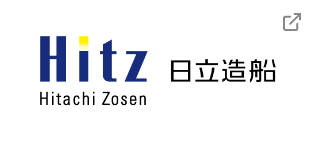〆A Total of 1,364 Engines Had Altered Data; Hitachi Zosen Faces Potential Halt in Engine Shipments
Hitachi Zosen Corporation has announced that it falsified fuel efficiency data for engines used in tankers and dry bulk carriers. The company disclosed that the number of engines with altered data totals 1,364. This revelation may potentially halt the shipment of engines by Hitachi Zosen.
On July 5, 2024, Hitachi Zosen revealed that two of its subsidiaries had manipulated the fuel efficiency data for large marine engines installed in large tankers and dry bulk carriers. According to the company, an investigation of 1,366 marine engines manufactured since 1999 found that nearly all of them, 1,364 in total, had improperly altered fuel consumption rate data.
When engine manufacturers like Hitachi Zosen falsify fuel consumption rates, it also affects the calculation of nitrogen oxide (NOx) emissions. NOx emission levels are regulated by the Marine Pollution Prevention Law (MARPOL Convention) and the International Maritime Organization (IMO) standards, and deviations from these standards may occur. From 2024, the international shipping industry faces new greenhouse gas regulations, including the EU-ETS (European Union Emissions Trading System) and the CII (Carbon Intensity Indicator).
Hitachi Zosen currently manufactures engines for large tankers and cargo ships through its subsidiaries, Hitachi Zosen Marine Engine in Nagasu Town, Kumamoto Prefecture, and IMEX in Onomichi City, Hiroshima Prefecture. Hitachi Zosen had been altering the recorded fuel consumption rates to different values during test runs of the engines in the presence of customers. In response to this situation, the Ministry of Land, Infrastructure, Transport, and Tourism (MLIT) has announced plans to conduct on-site inspections at the factories of Hitachi Zosen’s subsidiaries.
Regarding data falsification by Japanese engine manufacturers, the MLIT had previously warned all engine manufacturers following a similar incident of data falsification by IHI for ship engines. In response to this warning, Hitachi Zosen conducted an internal investigation starting in April 2024, which led to the discovery of the current data falsification issue.
On July 5, 2024, the MLIT announced that they would not issue certificates indicating compliance with NOx regulations until compliance could be confirmed based on the reports from Hitachi Zosen. The Marine Pollution Prevention Law requires ship owners to install engines that have been certified. Consequently, Hitachi Zosen may effectively be unable to ship its engines.
The MLIT plans to conduct an on-site inspection at the Hitachi Zosen Marine Engine factory in Kumamoto Prefecture on July 8, 2024.
〆日立造船(Hitachi Zosen Corporation)は外航タンカー、ドライ向けエンジンの燃費データの数値を改ざんしていたと発表した。
〆日立造船が数値を改ざんしたエンジンの数は1364台である。
日立造船は2024年7月5日、同社の子会社2社が製造している大型タンカーやドライ貨物船に設置する大型船舶用エンジンの燃費データを改ざんしていたと発表した。同社によると、1999年以降の船舶エンジン1366台を調査した結果、ほぼ全数に当たる1364台で燃料消費率のデータの不正な書き換えが確認された。
